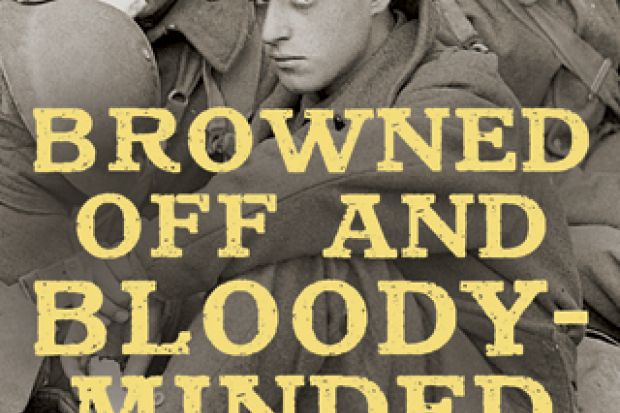“Conquering ‘seemed a bit un-English’ ”, thought soldier John Smith as he marched across the German border. He wasn’t quite sure how to go about it. By early 1945 the British army had given Smith a lot of instruction: some of it useful, but much of it a dreadfully dull education in polishing, drilling and waiting around, not particularly relevant when staring down the barrel of an enemy gun. There had been precious little advice given on how to be a “conqueror”, as if even the British believed the role to belong more naturally to the Germans or Japanese. This is not to say that historian Alan Allport suggests that victory was not deserved or should be seen as surprising. Rather, like much else in the army’s war effort, it was not necessarily something for which they had planned.
It would be praise enough for a reviewer to say that she came away from this book understanding the Second World War in a way she never had done before. But Allport’s latest work is far more than a revolutionary narrative of the (British) war effort. It is a window into the psyche of Britain – male Britain, it has to be said – and into the clashes between the classes, generations and masculinities that comprised it and attempted to defend their particular version of it. The British patrician class’ aversion to training the lower classes as officers, Winston Churchill’s disparaging view of the enlisted generation as weak and effeminate, tired soldiers with 300 days of continuous battle under their belts deserting en masse before D-Day; all of this is a “shock to us today”, we who have been fed a near-exclusive diet of a meritocracy fighting for democracy, backed by a prime minister confident in the toughness of this “greatest generation”. But the muddy, frustrated, sometimes downright incompetent reality Allport presents us with is far more powerful, revealing as it does how a diverse, independent-minded group of men fought, whether in a trench or at a depot or from behind a desk, despite immense fear or through tears, not from a nebulous sense of righteousness but out of a deeply human love for the man beside them.
If there is a criticism to be made of Browned Off and Bloody-Minded, it is how male and front line orientated this story remains. Allport is explicit about the first being unavoidable in the male-only world of the front lines. However, despite telling us that a disproportionately small number served in this highly dangerous position, we learn less about those men (and women) who never left Britain’s shores, whose war was different but no less fraught – in part because, one imagines, they felt either cheated out of the “true” experience or guiltily relieved to have escaped danger. Their memoirs and diaries may have held less interesting stories – or they may have been less likely to keep them – but that tells us something in and of itself. Allport could not cover everything, it is true, but this is a book I would have been happy to read for several chapters more. It achieves that rare goal of being both unputdownable and rigorously researched. With many of its primary sources coming from the Imperial War Museum’s wonderful archives, it is also a stark reminder of how crucial it is that those archives stay free and accessible to all who wish to use them.
Browned Off and Bloody-Minded: The British Soldier Goes to War 1939-1945
By Alan Allport
Yale University Press, 424pp, £25.00
ISBN 9780300170757
Published 19 March 2015
Register to continue
Why register?
- Registration is free and only takes a moment
- Once registered, you can read 3 articles a month
- Sign up for our newsletter
Subscribe
Or subscribe for unlimited access to:
- Unlimited access to news, views, insights & reviews
- Digital editions
- Digital access to THE’s university and college rankings analysis
Already registered or a current subscriber? Login





